This May, during our return to Son Vi border commune in Meo Vac district, Ha Giang province, we saw many well-built houses, concreted roads, and expanded farming activities among the local people. The dream of living in solid houses has come true for many thanks to the Party and State’s program to eliminate makeshift and dilapidated homes, along with the support of the border guard force.
    |
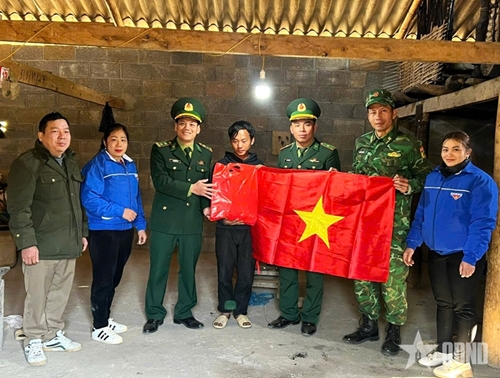 |
|
Son Vi Border Post presents national flag to the family of Giang Mi Gio. |
Welcoming us in his new house, Giang Mi Gio, a resident of Xeo Ho village, happily shared that his family was fortunate to receive financial support from the State and labor assistance from the Son Vi Border Post under the Ha Giang provincial Border Guard Command to build a new home to replace their seriously degraded one.
    |
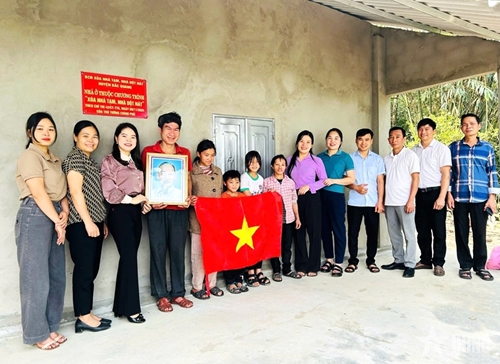 |
|
Bright smile of local people with the special gift on inauguration day of new house |
Looking at the national flag fluttering outside—a gift from the Son Vi Border Post—Gio could not hide his happiness. “From now on, my family can feel secure. We are deeply grateful to the Party, the State, and the border guard force. We will strive to work hard, eliminate hunger, reduce poverty, and cooperate with local authorities and the border guard force to protect the national borders.”
    |
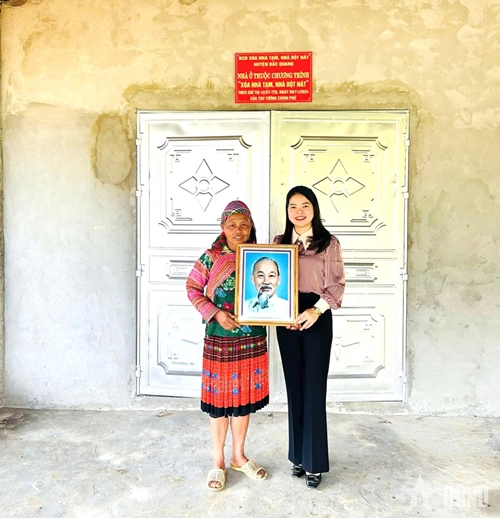 |
|
Secretary of Tan Thanh commune’s Party Committee Quoc Thi Thanh Thao (right) presents the portrait of Uncle Ho to a local person. |
In a conversation, Major Nong Quang Lap, Deputy Political Commissar of the Son Vi Border Post, said that despite harsh weather conditions, the unit’s officers and soldiers have helped local residents demolish their old houses, start new constructions, and transport building materials. So far, eight houses under the aforementioned program have been completed and put into use.
Maj. Lap added that presenting national flags to local people on key national occasions aims to foster patriotism and national pride. Additionally, giving flags to families with new homes serves as encouragement for them to uphold patriotic traditions, pursue economic development, and firmly safeguard national sovereignty and border security.
    |
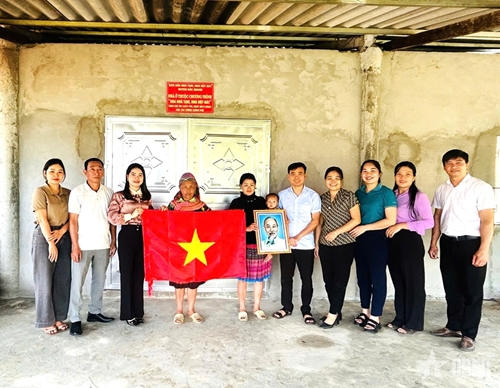 |
|
Ha Giang province encourages other localities in the province to present the national flag and portrait of Uncle Ho to local people having new houses. |
In Tan Thanh commune, Bac Quang district, 20 households facing difficult living conditions and housing shortages are now settling into new homes built according to technical and safety standards.
To help locals focus on economic development after receiving new homes, the commune’s Party Committee has adopted effective communications strategies to change mindsets and encourage production activities.
    |
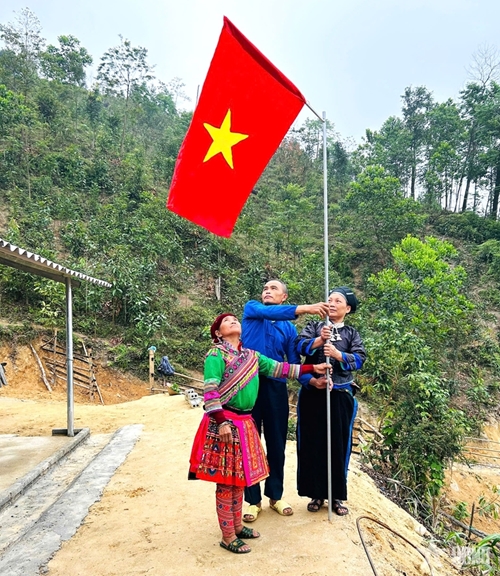 |
|
The presentation of national flags and Uncle Ho’s portraits to border people in Ha Giang is more significant in this May when the late President’s 135th birthday anniversary is celebrated. |
Quoc Thi Thanh Thao, Secretary of the Tan Thanh Commune Party Committee, shared that whenever a new house is inaugurated, leaders from the Party Committee and local authorities always present a national flag and a portrait of Uncle Ho as gifts.
As of April 30, more than 5,300 houses had been built across Ha Giang province to replace substandard ones, with nearly 3,600 already in use. The province is accelerating efforts to eliminate all makeshift and dilapidated housing by October 31 this year. Localities are encouraged to present national flags and Uncle Ho’s portraits to residents receiving new homes to motivate them to contribute actively to local socio-economic development.
    |
 |
|
Joining hands to develop border areas in Ha Giang province |
The presentation of these meaningful gifts in the historic month of May holds special significance, as it coincides with the 135th birth anniversary of President Ho Chi Minh (May 19). His bright example—his contributions, sacrifices, love, and teachings—continues to serve as a guiding light for younger generations to build and defend the nation and strive to be worthy of being his descendants. It also reflects the Party and State’s deep care for people living in border areas.
Translated by Mai Huong